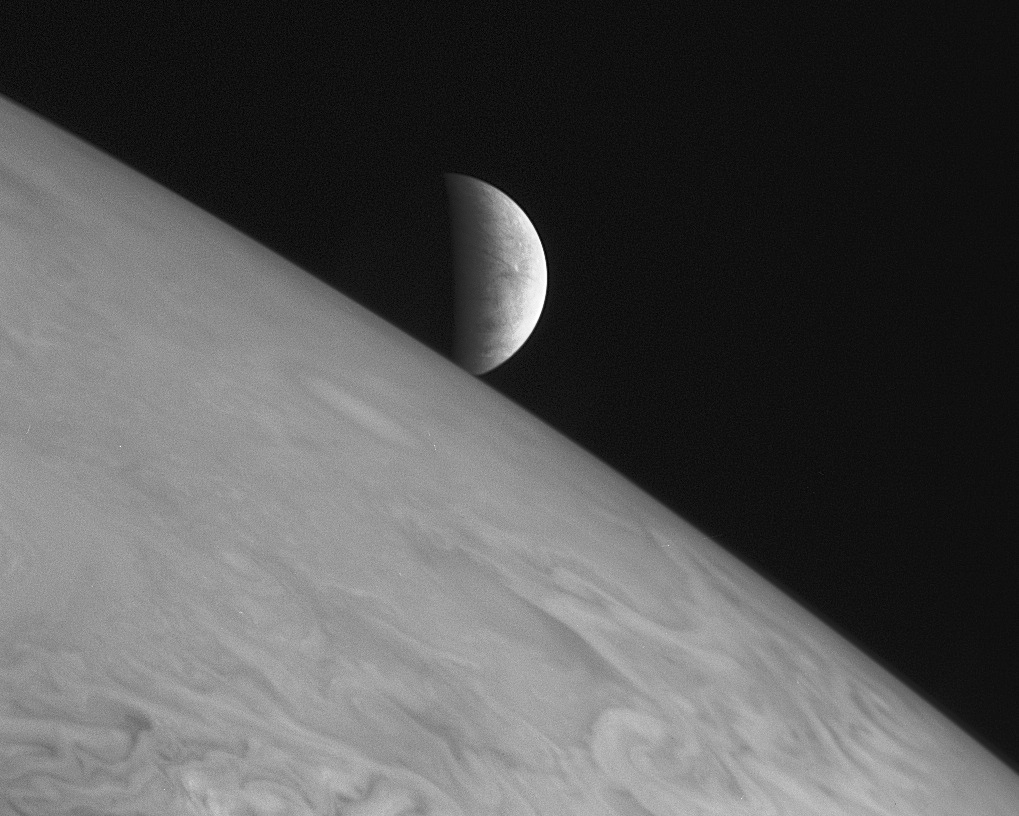Water from the Rock
Exciting news broke today that data from the Indian spacecraft Chandrayaan-1, along with data from Deep Impact and Cassini, have all confirmed that water exists pervasively on the surface of the moon, if extremely diffusely. The results are "unequivocal," according to scientists who've seen the data and analysis.
I got excited reading this news, since it means lunar exploration, either robotic or human, could utilize this water for life support systems, rocket fuel, or other needs. The most popular theory at the moment is that extremely fast protons in the solar wind (H+ ions) slam into the Moon's surface, knock off oxygen from oxidized compounds in the lunar soil like aluminum oxide, and then the hydrogen and oxygen bond together. Much of this then evaporates and escapes the Moon's low gravity, but the solar wind continually replenishes the surface with a very, very disperse "coating" of water molecules.
After reading about this, I picked up my Bible to read before going to bed, and the very first words my eyes saw were these, in Numbers 20:
Wow. Will God one day "pour out" water from the Moon's rocks for humans to drink, just as He did for the Israelites in the desert? Perhaps. If so, I pray the humans will give glory to God and thank Him for what's He's given them. But one thing is for sure: Jesus is the Rock that pours forth living water, and the true satisfaction for our souls' thirsts. As Paul says of the Israelites in 1 Corinthians 10:4, "they drank from the spiritual rock that accompanied them, and that rock was Christ."
Many scientists and space enthusiasts will be excited when they read this news about water on the Moon. I doubt very many of them will be as excited about the living water that Jesus gives us. May God help them, and all of us, to recognize the meaning of the water that pours forth from the Rock, and provides for us in this dry and weary land. As the Psalmist aptly said, "The heavens declare the glory of God." (Psalm 19:1)
I got excited reading this news, since it means lunar exploration, either robotic or human, could utilize this water for life support systems, rocket fuel, or other needs. The most popular theory at the moment is that extremely fast protons in the solar wind (H+ ions) slam into the Moon's surface, knock off oxygen from oxidized compounds in the lunar soil like aluminum oxide, and then the hydrogen and oxygen bond together. Much of this then evaporates and escapes the Moon's low gravity, but the solar wind continually replenishes the surface with a very, very disperse "coating" of water molecules.
After reading about this, I picked up my Bible to read before going to bed, and the very first words my eyes saw were these, in Numbers 20:
"Speak to that rock before their eyes and it will pour out its water. You will bring water out of the rock for the community so they and their livestock can drink."
Wow. Will God one day "pour out" water from the Moon's rocks for humans to drink, just as He did for the Israelites in the desert? Perhaps. If so, I pray the humans will give glory to God and thank Him for what's He's given them. But one thing is for sure: Jesus is the Rock that pours forth living water, and the true satisfaction for our souls' thirsts. As Paul says of the Israelites in 1 Corinthians 10:4, "they drank from the spiritual rock that accompanied them, and that rock was Christ."
Many scientists and space enthusiasts will be excited when they read this news about water on the Moon. I doubt very many of them will be as excited about the living water that Jesus gives us. May God help them, and all of us, to recognize the meaning of the water that pours forth from the Rock, and provides for us in this dry and weary land. As the Psalmist aptly said, "The heavens declare the glory of God." (Psalm 19:1)
